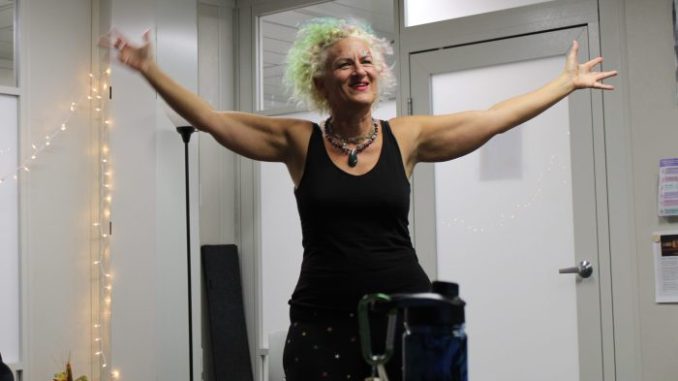
Chiropractics. Detoxes. Carnivore diets. The world of health, mental and otherwise, is dense with “alternative medicines” that, when scrutinized, lack a scientific backbone; it is, of course, anyone’s choice to pursue these practices for themselves, and their freedom shouldn’t be infringed upon. However, an issue arises when those whose opinions carry greater weight advocate for these treatments; we expect our public health professionals to work in accordance with facts and provide us with accurate information about our health and options. It’s confusing and potentially dangerous when an informed professional promotes an opinion without a body of evidence behind it.
The Health Promotion Office’s Hive recently invited astrologer Natalie Levin to speak with students and introduce the broad strokes of astrology. In an email announcing the October 3rd workshop, Levin’s bio described how she combines “…psychic talents… Jungian analysis, Gestalt couples’ therapy, and trauma therapy…” in her work and her ability to “…connect with what is beyond the veil of the three-dimensional to offer insights and wisdom from the stars.” Naturally, I was curious about how the event would frame astrology, so I went. It was a fun, low-stress evening, and Levin was kind, bubbly, and funny.
However, I saw several reasons for concern.
First of all, I feel that Levin’s attitude on mental illness was problematic for an event held by one of Ursinus’ health resources: she discussed her belief that both mental illness and addiction are rooted in astrology. For example, she explained that those with many water signs in their charts— Cancers, Scorpios, and Pisces—can attribute mental illness and addiction to the unstable energy of water and the sheer amount of psychic energy they receive from the universe. As a student who has struggled with mental health issues, it was uncomfortable to hear, and I can very easily imagine that narrative having stood in the way of my pursuing effective therapy.
Secondly, Levin discussed at length her beliefs concerning spirits, psychic abilities, and psychic energies, going so far as to tell one student that, because of their star sign, they may be an extraterrestrial from the future and another that they may be a medium. Obviously, both of these claims are entirely unsubstantiated and lean heavily into the spiritual, and, in my opinion, have no place at the Hive.
When asked about the session, Director of Health Promotion Katie Bean explained that the Hive’s goal is to “build community and offer various coping strategies for students to find what works for them,” and noted that the topic of astrology was requested by a student. Student worker Payton Fritz added that “[events by the Hive offer] a wide range of programming throughout the semester that [promote] healthy recovery of mental illness and substance use disorder.” However, isn’t it the responsibility of Health Promotion to filter out requests that don’t meet reasonable evidentiary standards?
Of course, all students deserve to feel supported and celebrated in whatever beliefs they may hold. As Ursinus senior Tre Dunlap puts it: “I’m glad that they’re trying to appeal to all kinds of healing, I guess. It’s important that we all feel in any way healthy, whether that’s spiritually or mentally.” But, Dunlap observes, “I don’t exactly agree with this. I don’t think there’s ‘healing magic’ in astrology.” Spiritual health is an important part of wellness. The problem comes when students see unsubstantiated beliefs being promoted in a wellness context by the same office running programs like UCrew, our online wellness education, and All-Recovery Meetings.
Perhaps something like this could be more appropriately handled by the Office of Religious and Spiritual Life. With the Hive being a part of the Wellness Center, it’s vital that students feel they can trust that any information they receive is backed by science and constructive towards their personal needs. Pseudoscience concerning mental health can erode that trust and steer students away from evidence-based, potentially lifesaving care.
It’s too easy to read this program as the Hive supporting the mixing of the pseudoscientific and the type of care it provides. The promotion of evidence-based self-care would better serve Ursinus students. In the future, it should be clear when a Health Promotion Office speaker is focused on mental health versus spiritual health and evidence-based versus personal beliefs so that we, as students who trust the Wellness Center with our care, may know how best to use the information being given to us and where that information is coming from.
